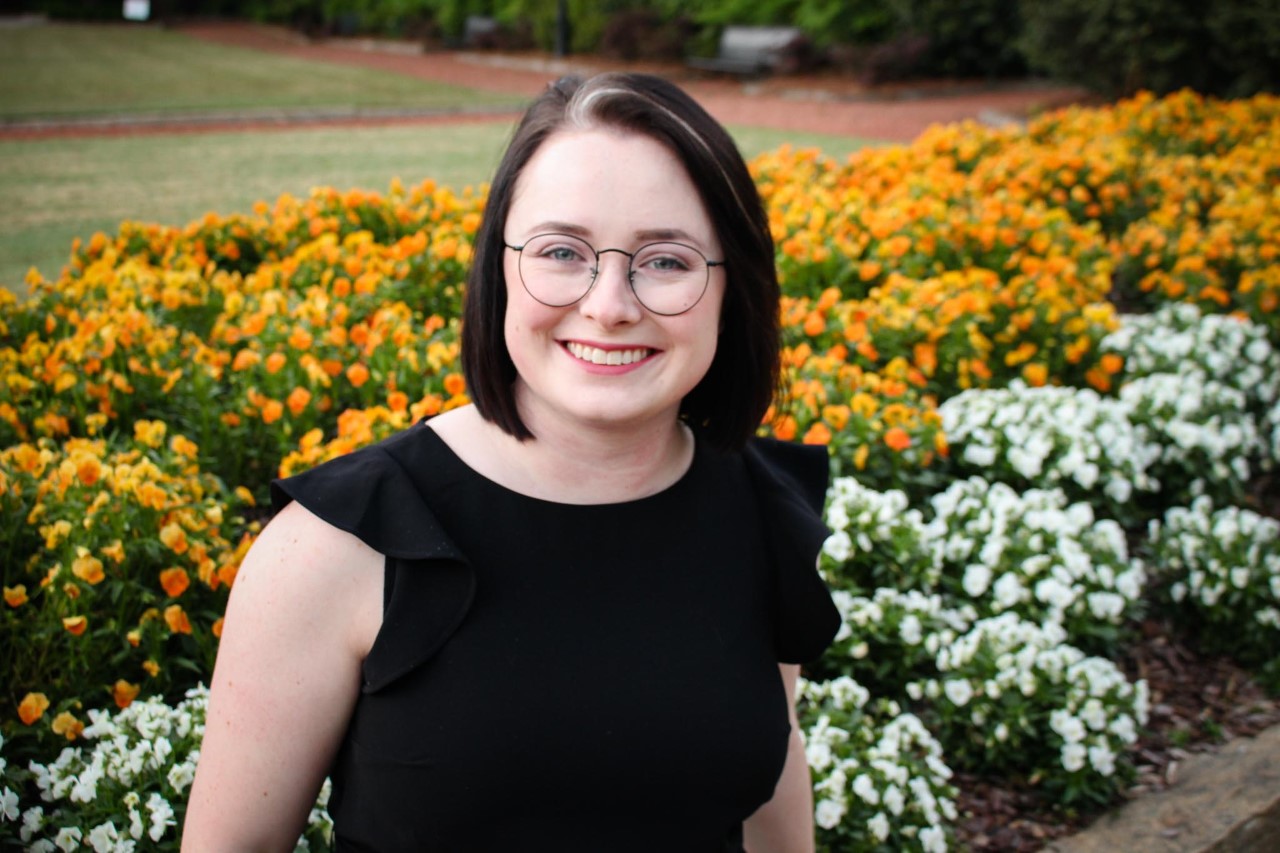Elizabeth Griffin graduated in 2019 from SPIA with two bachelor’s degrees in political science and international affairs. From there, she jumped straight into her master’s program in public administration at UGA, a decision she credits to her internship with Carl Vinson Institute of Government through the SPIA Emerging Leaders program.
Elizabeth is from Carrollton, Georgia, where her family has resided for 200 years. She came to UGA with plans to become an English professor, but that changed after she took a class on global issues her freshman year. After that, she switched to SPIA to start studying international affairs, which Elizabeth says is still her favorite subject. Once she started her international affairs degree, she decided she needed more perspective —a theme that would follow her throughout her college career—and added a major in political science.
Elizabeth then turned her sights to local government. She was also in the applied politics cohort as an undergraduate, as well as a Public Service and Outreach Student Scholar, which afforded her the internship with the Carl Vinson Institute of Government.
Elizabeth applied to SPIA’s Emerging Leaders program because of the connections it would provide. “They already had the internships coordinated,” she said. “The hardest part of the internship process is getting your foot in the door, and SPIA does that for you in this program.”
Elizabeth was looking for an opportunity at the city level, but did not have experience in local government yet. Having SPIA’s resources allowed her to land an internship with the City of Lawrenceville in their Planning Department.
Elizabeth’s time in the internship was so successful that she was offered an extension that transitioned into a part-time job. In her work with the City of Lawrenceville, Elizabeth has contributed to the city’s new zoning ordinance by bringing an outside perspective and reading for accessibility as a citizen. She has gotten the opportunity to write permit reports, help the finance department with the budget, process utility bills, and sit in on meetings with citizens and the leadership of the city.
“My favorite part is watching leadership at work, and watching how they interact with people,” Elizabeth says. “The best part of working in city government is interacting with people —my desk is in the front where people come in and ask questions, so I get to see how the city operates in that way.”
The experience she gained through her internship has allowed her to truly understand the day-to-day operations of local government.“In the [MPA] program, we learn about the ideals, but this experience has allowed me to see those ideals in the everyday stuff. [It has taught me how to] keep those ideals alive even when I’m tired and frustrated [with government work],” Elizabeth says.
In the future, Elizabeth aspires to have a role in city leadership. “[However,] I’m more concerned with the type of job, rather than the job specifically at this point.” She adds, “I want a job where I can learn as much as I can, while gaining perspective on what’s going on in the world.”
On her overall experience with the SPIA Emerging Leaders program, Elizabeth reiterates how important the connections are that she made.
“It put me into contact with people who are really awesome leaders and public servants, and [who] do the work we talk about doing everyday. [I appreciate] having them as resources and mentors in the long-term.”
The connections, experience, and mentors Elizabeth has gained through her internship are undoubtedly the highlight of her participation in the Emerging Leaders program. “I think the biggest thing that I’ve gotten out of this experience is developing those relationships with people who do something that I think is really important and noble. I think if you meet people that you want to be like, even if they’re not necessarily doing something that you want to do, you get so much out of that.”
The SPIA Experiential Learning Fund gives students who are interested in working in the public or nonprofit sector the opportunity to get compensated for their unpaid internships with priority to underrepresented groups. To qualify as underrepresented students must satisfy at least two of the following conditions: (1) history of overcoming unique challenges; (2) first generation college student; (3) member of a low income family; (4) reside in a rural or inner-city location; (5) raised in a single parent household. If you are interested in supporting the Emerging Leaders Program to ensure a greater number of opportunities for students to pursue their public affairs interests then give to the Experiential Learning Fund.






